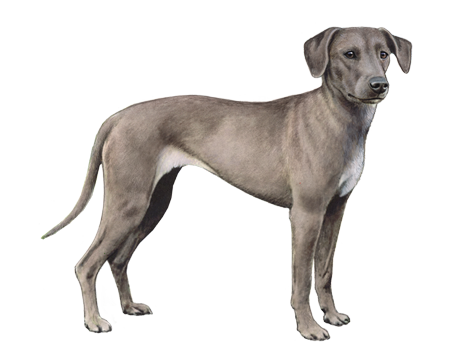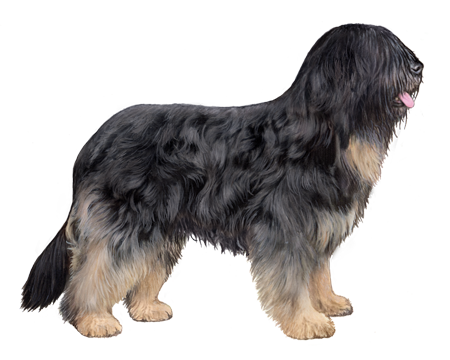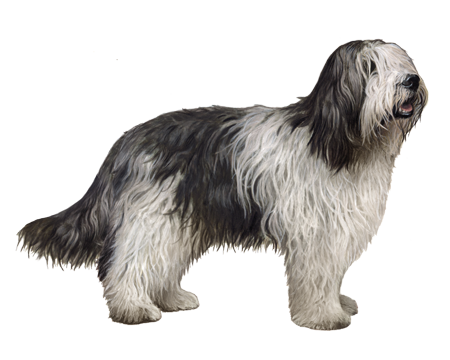
Cardigan Welsh Corgi
Cardigan Welsh Corgis are athletic working dogs with stamina to spare. Though small, these dogs have a big bark that makes them excellent watchdogs. And when not on the job, the Cardigan Welsh Corgi is an affectionate companion.
Interested in discovering if your dog is a Cardigan Welsh Corgi?
Check out Wisdom Panel's DNA tests.

Cardigan Welsh Corgi Traits
General Appearance
Cardigan Welsh Corgis are powerful, low-set, sturdy dogs with heavy bones and deep chests. The handsome breed moves with speed and endurance.
Coat and Colouring
This double-coated breed has a short, soft, thick undercoat and a longer, harsh outer coat that lies smooth. Cardigan Welsh Corgis have short hair on their ears, head, and legs. The hair on their bodies is a little longer, and thick hair around their necks, chests, shoulders (creating a ruff), back of thighs, and underside of their tails is the longest of all.
Cardigan Welsh Corgis come in all shades of red, sable, and brindle—as well as black with or without tan or brindle points—and blue merle, defined as black and gray, marbled. White on the neck, chest, legs, muzzle, underparts, tip of tail, and head (as a blaze) is possible. But white should never be the predominant color.
Distinctive Physical Traits
Cardigan Welsh Corgis are low-set dogs that are much longer than tall. These dogs have firm and level toplines, broad chests, strong, well-muscled hindquarters, and tails that are set low and reach well below the hock. The Cardigan Welsh Corgi's large and prominent ears are slightly rounded at the tips. Its medium-to-large, widely set eyes convey an alert, gentle, watchful expression.
Cardigan Welsh Corgi Temperament
Cardigan Welsh Corgis are active, affectionate dogs. Despite having short legs, these canines are quick and agile. And a history of cattle herding has also given the rugged breed a love for the outdoors.
Cardigan Welsh Corgis adore their families and are generally great with other pets and children. They're adaptable—comfortable living in an apartment or on a ranch (or somewhere in between), as long as they get the mental and physical exercise they crave.


Cardigan Welsh Corgi History
Cardigan Welsh Corgis hail from the medieval kingdom of Cardiganshire, Wales. Dating back to 1200 B.C., these working dogs are among the oldest British breeds. And their name comes from "kergie," the Celtic word for dog.
Throughout history, these small but powerful dogs made excellent herders. Their size puts them at the perfect height to nip at the heels of cattle—without being kicked. Cardigan Welsh Corgis also served as guardians. They moved cattle during the day and guarded them at night, barking to scare off predators and alert owners of trouble.
The first pair of breeding Cardigan Welsh Corgi arrived in the U.S. in 1931. Though this breed is well-known, it's not as popular as the Pembroke Welsh Corgi. (Cardigan Welsh Corgis often intermingled with Pembroke Welsh Corgis, but the two have been distinct breeds since the late 1800s.)
Cardigan Welsh Corgi Care
Nutrition
Cardigan Welsh Corgis need a high-quality dog food formulated for their life stage (e.g., puppy, adult, senior). These dogs can easily become overweight, and excess weight strains their long backs—potentially leading to disc problems. To avoid this, measure out your dog's meals, and limit treats to no more than 10% of their daily calories.
Grooming
Regular grooming will keep your Cardigan Welsh Corgis looking their best. A good brushing at least once per week removes cast-off hair and minimizes shedding. During spring and summer—when these dogs are shedding more than usual—regular baths and daily brushing with an undercoat rake will help loosen excess hair.
Trimming nails, cleaning ears, and brushing teeth should also be part of every dog's grooming routine, regardless of breed.
Exercise
Cardigan Welsh Corgis are little dogs with large exercise needs. Besides herding cattle or sheep, the energetic breed enjoys walks, hikes, and trips to the dog park. Due to their short legs and bulky bodies, Cardigan Welsh Corgis are not great swimmers and cannot keep up on a fast run.
These highly intelligent dogs also excel in dog sports, such as agility, obedience, rally, and tracking. But keep in mind, the Cardigan Welsh Corgi's long back is injury-prone. So, you should avoid activities that require a lot of jumping or stairs.
Training
Stubborn and sensitive, Cardigan Welsh Corgis require consistent, gentle training that focuses on positive reinforcement and rewards. When they get it, they master basic commands and learn new tasks quickly.
Early socialization is also essential for this breed. When your Cardigan Welsh Corgi is a puppy, introduce them to activities that allow them to engage with others—even if it's simply interacting with neighbors during a walk around the block. This will help them grow into a well-adjusted adult dog.

Cardigan Welsh Corgi Genetic Health Conditions
-
Chondrodystrophy (CDDY) and Intervertebral Disc Disease (IVDD) Risk
Chondrodystrophy (CDDY) is a skeletal disorder characterized by shortened limbs and abnormal early degeneration of the spinal discs, or intervertebral disc disease (IVDD), which predisposes to disc herniation.
-
Rod-Cone Dysplasia 3
Rod-Cone Dysplasia 3 (rcd3) is an eye disorder affecting the development of retinal photoreceptors at the back of the eye, resulting in vision loss.
-
X-Linked Severe Combined Immunodeficiency (Discovered in the Cardigan Welsh Corgi)
X-linked Severe Combined Immunodeficiency (XSCID) is a severe dysfunction of the immune system, that leaves affected dogs prone to infection.
Knowing if your Cardigan Welsh Corgi is a carrier or at-risk for these conditions can help you and your veterinarian plan for your pup's lifelong care. With Wisdom Panel™ Premium, you can get results for over 200 genetic health tests.
Breed Group
Herding
The herding group is a diverse category. These highly intelligent breeds were developed to guard and control the movement of livestock.
Resources
https://www.akc.org/dog-breeds/cardigan-welsh-corgi/
http://images.akc.org/pdf/breeds/standards/Cardigan_Welsh_Corgi.pdf
Reviewed 26 July 2020 by Annette Louviere, DVM























































